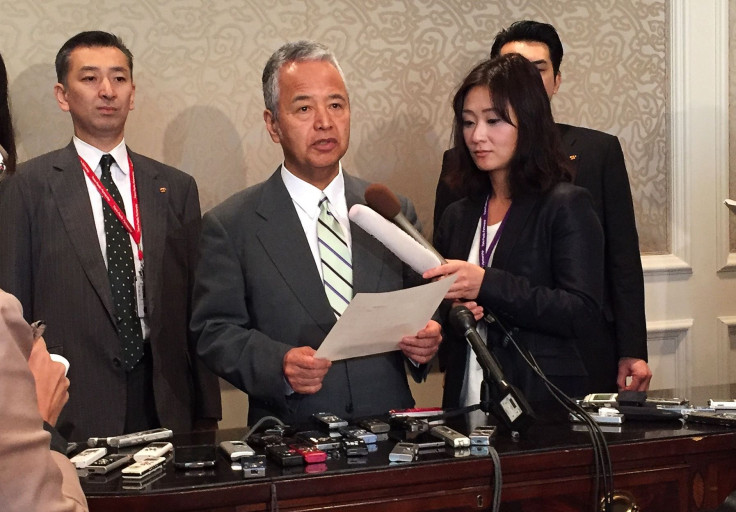Trans-Pacific Partnership Trade Talks Bog Down, As Japan Demands US Achieve Compromise On Drugs

ATLANTA (Reuters) -- Japan called on the U.S. to find a way to break a deadlock over protections for next-generation medicines Saturday as talks on a sweeping trade pact were extended for another 24 hours. Negotiators have been up all night attempting to broker a deal on the 12-nation Trans-Pacific Partnership (TPP), which will create a free-trade zone covering 40 percent of the world economy.
A push by the U.S. to set a longer period of exclusivity for drugmakers who develop biological drugs such as Genentech Inc.’s Avastin cancer treatment has run into opposition from other TPP economies and is holding up a broader deal.
Japanese Economic Revitalization Minister Akira Amari said he had agreed to a U.S. request to stay on in the southern city of Atlanta for another 24 hours, but said the U.S. had to find a way forward on biologics. "I said there were two conditions for us to accept that proposal: first, this would be the last chance, in other words, there had to be certainty of getting a deal on pharmaceuticals; second, because of the schedule, Japan could not accept any further extension," Amari told reporters.
The U.S. allows pharmaceutical companies an exclusive period of 12 years to use clinical data behind the approval for a new biological drug.
The Obama administration had previously proposed lowering that threshold to seven years, but has pushed a proposal for an eight-year minimum in the TPP talks in Atlanta.
Along with other nations such as Chile and New Zealand, Australia has been unwilling to offer more than five years of protection for the medicines since longer terms will push up the cost of state-subsidized medical programs.
Drug companies argue that a longer period is needed to create an incentive for developing treatments for diseases such as arthritis and cancer.
The impasse is holding up a deal on dairy trade, the main other sticking point in the talks. New Zealand, home to the world's biggest dairy exporter Fonterra Cooperative Group Ltd., is insisting on increased access to U.S., Japanese and Canadian markets.
Canadian Prime Minister Stephen Harper, whose party faces a general election this month, said the talks had made progress. "Let me assure everyone that we will only conclude a deal that is in the best interests of our country," he told reporters in Montreal.
Harper's Conservatives are on course to win the most seats in the Oct. 19 election, but they may lose their majority, and the main opposition party has said it would not feel itself bound by any TPP deal that Harper negotiated. Canada's parliament also would have to approve any TPP pact.
TPP trade ministers, most of whom arrived in Atlanta Wednesday, had initially hoped to wrap up talks by Thursday.
(Reporting by Kevin Krolicki; Additional reporting by Krista Hughes and Ana Isabell Martinez in Atlanta and David Ljunggren in Montreal; Editing by Raissa Kasolowsky)
© Copyright Thomson Reuters 2024. All rights reserved.











